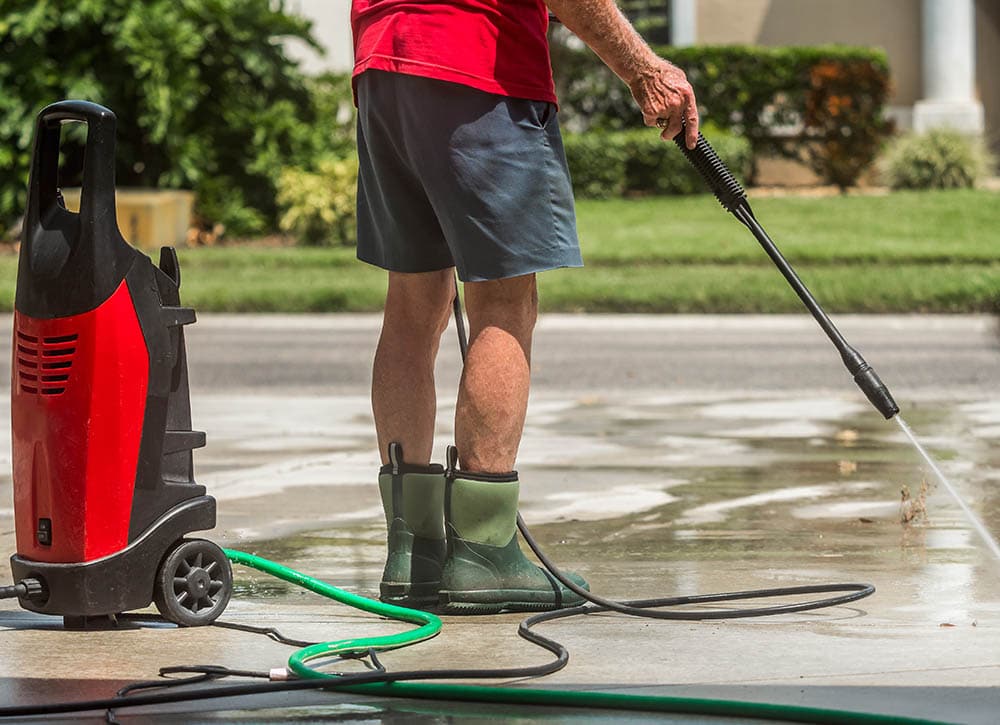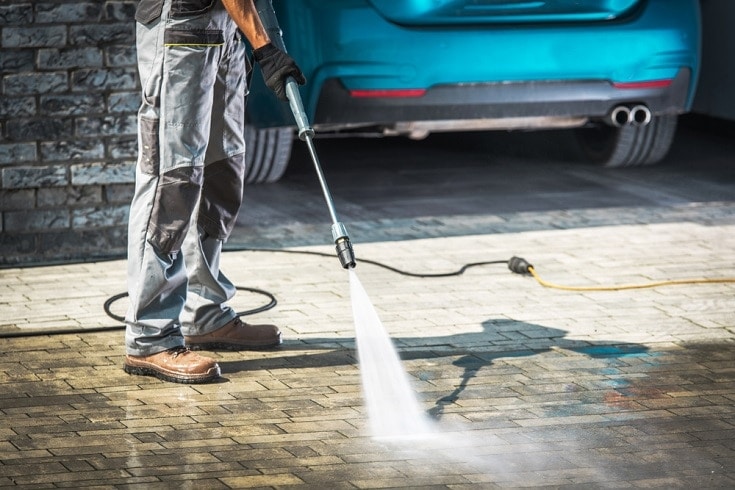Can I Use Water Softener Salt on My Driveway? Pros, Cons & FAQs
-
Ed Malaker
- Last updated:

Wintertime is a pain for everyone who needs to leave the house after a snowstorm. Shoveling sidewalks and the driveway can be a hassle, and commercial ice melt can be expensive. If you are looking for a more budget-friendly way to clear your driveway of ice, you might be considering a water softener. However, there are a few risks involved, so keep reading as we look at how a water softener works to remove ice and what the dangers are.
 What Is a Water Softener?
What Is a Water Softener?
A water softener contains the same ingredients as rock salt, which homeowners typically use to melt ice in their driveway, but in a purer form. This salt has a positive charge, which helps push hard minerals from water in a water-softening filtration system in homes that have hard water.
How Does Salt Melt Ice?
Salt lowers the freezing temperature of the water. Fresh clean water freezes at about 32 degrees Fahrenheit, while a solution of salt water that contains as much salt as the water can hold can stay liquid to -6 degrees Fahrenheit. Some commercial ice melt products may contain ingredients that drop the freezing temperature of water even further.
Is Water Softener Effective at Melting Ice?
Yes, the ingredients in water softener are the same as those in rock salt. However, a water softener has much fewer impurities, which helps it be more effective than traditional rock salt, and it leaves less mess behind. Another benefit is that it’s not in as high demand as rock salt, so it’s easier to find and less expensive, despite its pure ingredients.

Is Water Softener Dangerous to My Health?
No, the salt in water softener effectively removes hard metals from the water in people’s homes, including drinking water, without risk to personal health. Therefore, a water softener is safe for children, adults, pets, and most other animals.
What Is the Downside of Using a Water Softener as an Ice Melt?
Concrete
Salt of any kind, including a water softener, can combine with the chemicals in cement and cause it to degrade prematurely.
Asphalt
Though salt doesn’t react with the ingredients in asphalt like it does concrete, asphalt is more prone to cracking as salt water freezes and melts more frequently, worsening the problem and resulting in a surface that deteriorates quickly.
Soil pH
The more water softener you place on your driveway, the more will run off onto the yard around it. A large amount of salt in the soil will change the pH, affecting the way that your plants grow. If you notice that the grass near your driveway is brown, it’s getting too much salt.

How Do I Use Water Softener as an Ice Melt?
If you are purchasing a water softener specifically for ice melting, choose salt crystals because they are easy to spread and you’ll get more coverage. If you are using a water softener that you already have that doesn’t use crystals or you can’t find crystals to purchase, you’ll need to crush up the blocks or pellets the best that you can to turn them into a powder that you can spread over a larger area.
How Can I Help Protect the Surface of My Driveway?
If you want to use a water softener with a concrete driveway, we highly recommend applying a sealer in the fall. Sealers will help prevent the concrete from absorbing the salt, so it cannot cause damage. You will need to read the instructions carefully and reapply it frequently, so it doesn’t wear off.
Use only plastic and vinyl shovels on your driveway. Metal shovels and those with metal blades can scrape the concrete and asphalt, creating small grooves where ice can freeze and expand, creating premature damage to the surface.
If you notice that patches of grass are turning brown from the water softener, installing better drainage can help move the salt away from the area so it doesn’t damage the grass.
 Summary
Summary
A water softener can be an effective way to help remove ice from your driveway. It’s less expensive than rock salt and is often in stock long after traditional ice melt is sold out. It’s safe for humans and pets, and since there are fewer contaminants, it’s more effective. However, salt can react with the ingredients in concrete, so you’ll need to use a high-quality sealer on your driveway beforehand.
Related Read:
Featured Image Credit: The Toidi, Shutterstock
Contents
 What Is a Water Softener?
What Is a Water Softener?